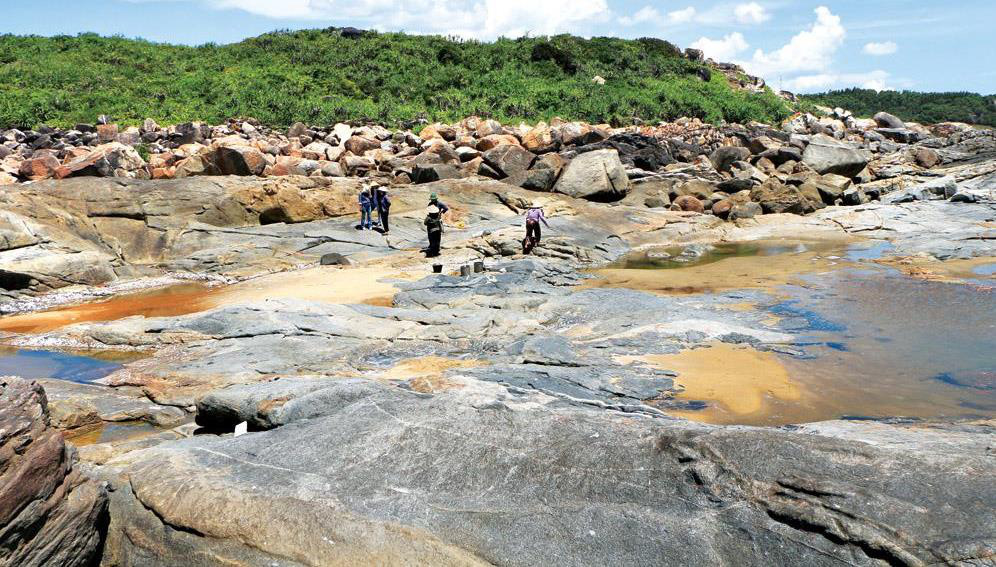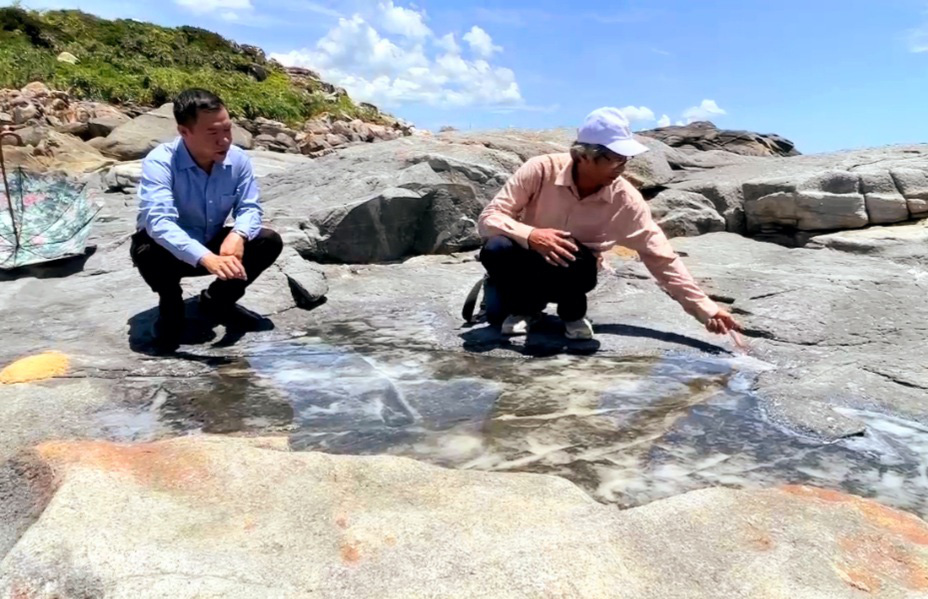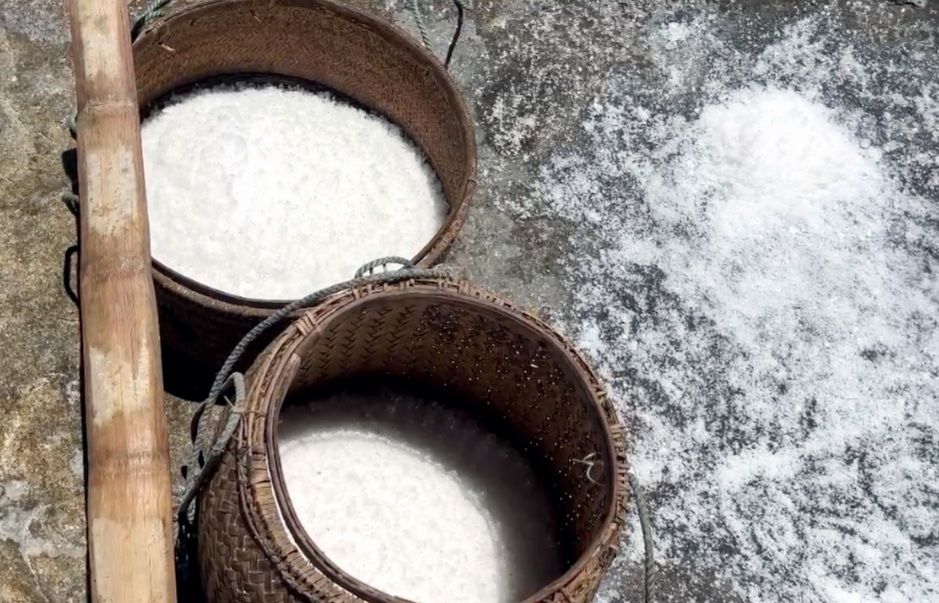An ancient salt field on rocky terrain, employing a salt-making method similar to the Yangpu Ancient Salt Field in China, has been unearthed in Quang Ngai Province, central Vietnam.
During the search for Sa Huynh cultural archeological relics, Dr. Doan Ngoc Khoi, deputy director of Quang Ngai Museum, uncovered an ancient salt field situated on a rocky slope in Go Co Village, Pho Thanh Ward, Quang Ngai’s Duc Pho Town, dating back approximately 2,000 years.
This area is located in the heart of Sa Huynh Culture (1000 BC–200 AD) and is recognized as a national monument.
The ancient salt field spans an estimated 10 hectares, bordered by the sea on one side and mountains on the other.
It is located 800 meters from the residence of the ancient Sa Huynh people and about 500 meters from their burial site.
Archeological findings indicate that around two millennia ago, the Sa Huynh people, known for their advancements in glass and iron technology, also mastered the art of salt making.
|
|
| Dr. Doan Ngoc Khoi (R), deputy director of Quang Ngai Museum, at the Sa Huynh Ancient Salt Field in Go Co Village, Pho Thanh Ward, Duc Pho Town, Quang Ngai Province, central Vietnam. Photo: Tran Mai / Tuoi Tre |
“Previously, archeologists studying the Sa Huynh Culture focused on pottery- and salt-making techniques, primarily excavating jar tombs without finding traces of the salt industry,” said Dr. Khoi.
“They have only now discovered evidence of ancient salt fields.”
The salt-making method employed by the ancient Sa Huynh people resembles that used in the Yangpu Ancient Salt Field in Hainan Island Province, China, dating back to around 800 AD.
Utilizing the rocky base and accessible seawater, they perfected salt production techniques, a practice passed down through Sa Huynh, Champa (200 AD–1700), and Dai Viet (1054–1804) Cultures.
Today, the people of Go Co Village continue this tradition, producing salt on rocky slopes where natural reservoirs are filled by rising tides.
Seawater is dried in the sun to increase salinity before being poured onto the salt fields on rocks, according to 70-year-old local Bui Thi Van.
Water is added continuously to thicken the salt, which takes about a week to harvest and yields two to three kilograms per salt field.
|
|
| Salt is harvested from the Sa Huynh Ancient Salt Field in Go Co Village, Pho Thanh Ward, Duc Pho Town, Quang Ngai Province, central Vietnam. Photo: Tran Mai / Tuoi Tre |
Before the discovery, Go Co Village was already a renowned community tourism destination, attracting both domestic and international tourists eager to participate in the ancient art of salt making on rocky terrain.
Researchers are planning to collect samples and analyze the age of these ancient salt fields in the village.
Dr. Khoi states that the discovery of ancient salt fields is significant as it offers a crucial basis for comparing the salt-making practices of the prehistoric residents of Sa Huynh with those in Southeast Asia and Asia at large.
“The archeology of salt works, ancient roads, living areas, and burial sites of the ancient Sa Huynh people is a vital addition to the dossier seeking recognition of Sa Huynh as a world heritage site for cultural archeological relics,” Dr. Khoi emphasized.
Like us on Facebook or follow us on Twitter to get the latest news about Vietnam!


















































